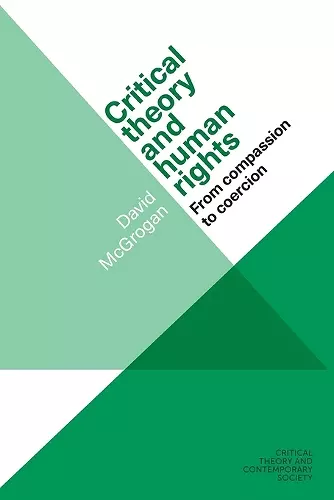Critical Theory and Human Rights
From Compassion to Coercion
Format:Paperback
Publisher:Manchester University Press
Published:28th Nov '23
Should be back in stock very soon

This book describes how human rights have given rise to a vision of benevolent governance that, if fully realised, would be antithetical to individual freedom. It describes human rights’ evolution into a grand but nebulous project, rooted in compassion, with the overarching aim of improving universal welfare by defining the conditions of human well-being and imposing obligations on the state and other actors to realise them. This gives rise to a form of managerialism, preoccupied with measuring and improving the ‘human rights performance’ of the state, businesses and so on. The ultimate result is the ‘governmentalisation’ of a pastoral form of global human rights governance, in which power is exercised for the general good, moulded by a complex regulatory sphere which shapes the field of action for the individual at every turn. This, unsurprisingly, does not appeal to rights-holders themselves.
'A formidable corpus of case law and other normative outputs have been developed in justification of positive human rights obligations and in favour of expansion of their scope and content. Critical theory and human rights: From compassion to coercion shows the inadequacy of an account of positive obligations that fails to seriously appreciate their intrusiveness and power of coercion. The book shows how human rights law interpreted as imposing ever more expanding positive obligations, runs the risk of undermining the very reason for which it was historically established - preserving individual freedoms.'
Dr Vladislava Stoyanova, Associate Professor of Public International Law at Lund University in Sweden
ISBN: 9781526174642
Dimensions: 234mm x 156mm x 15mm
Weight: 397g
280 pages